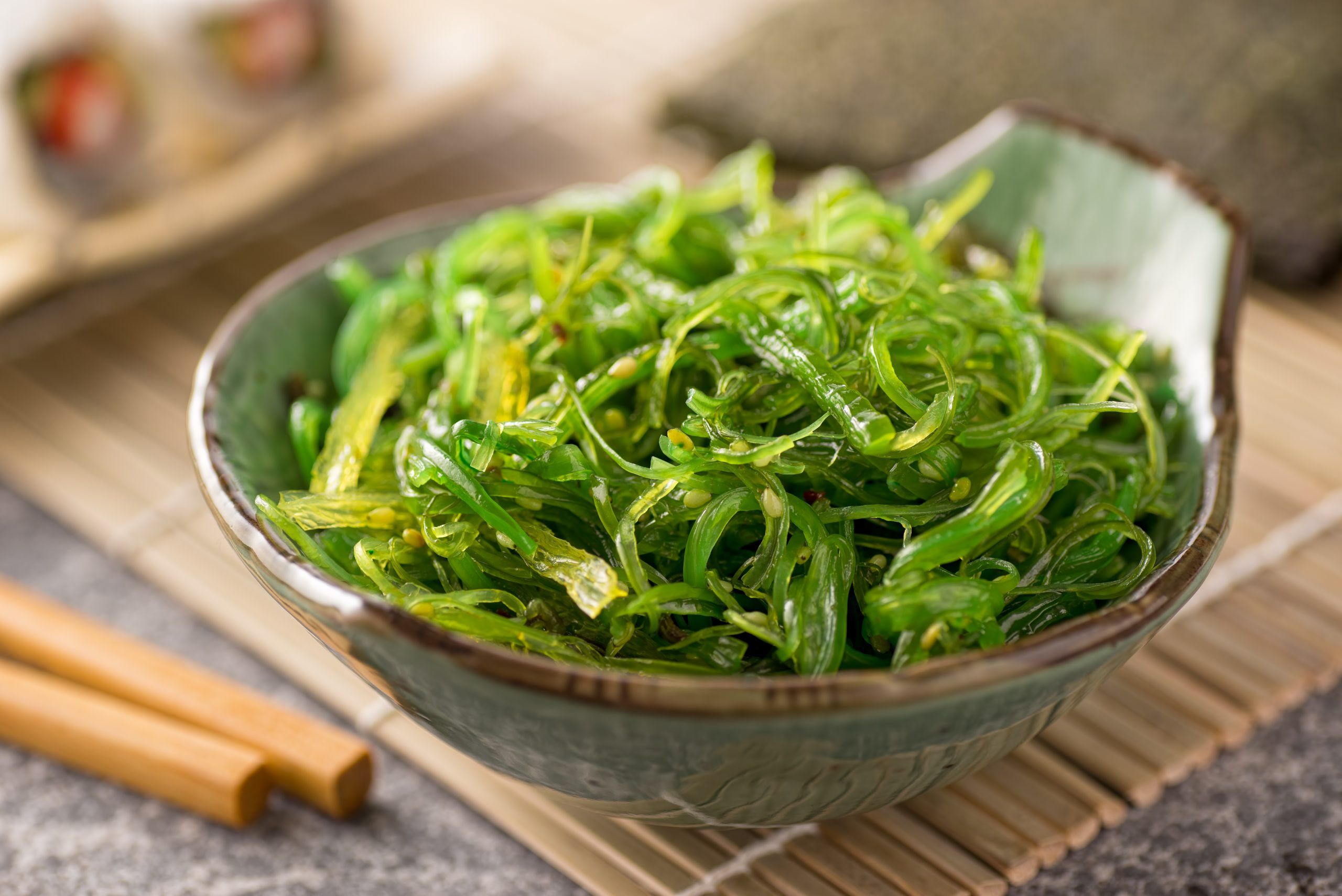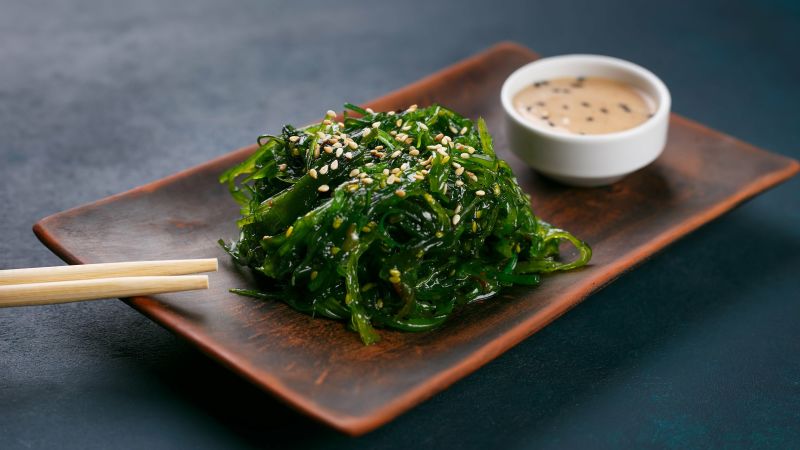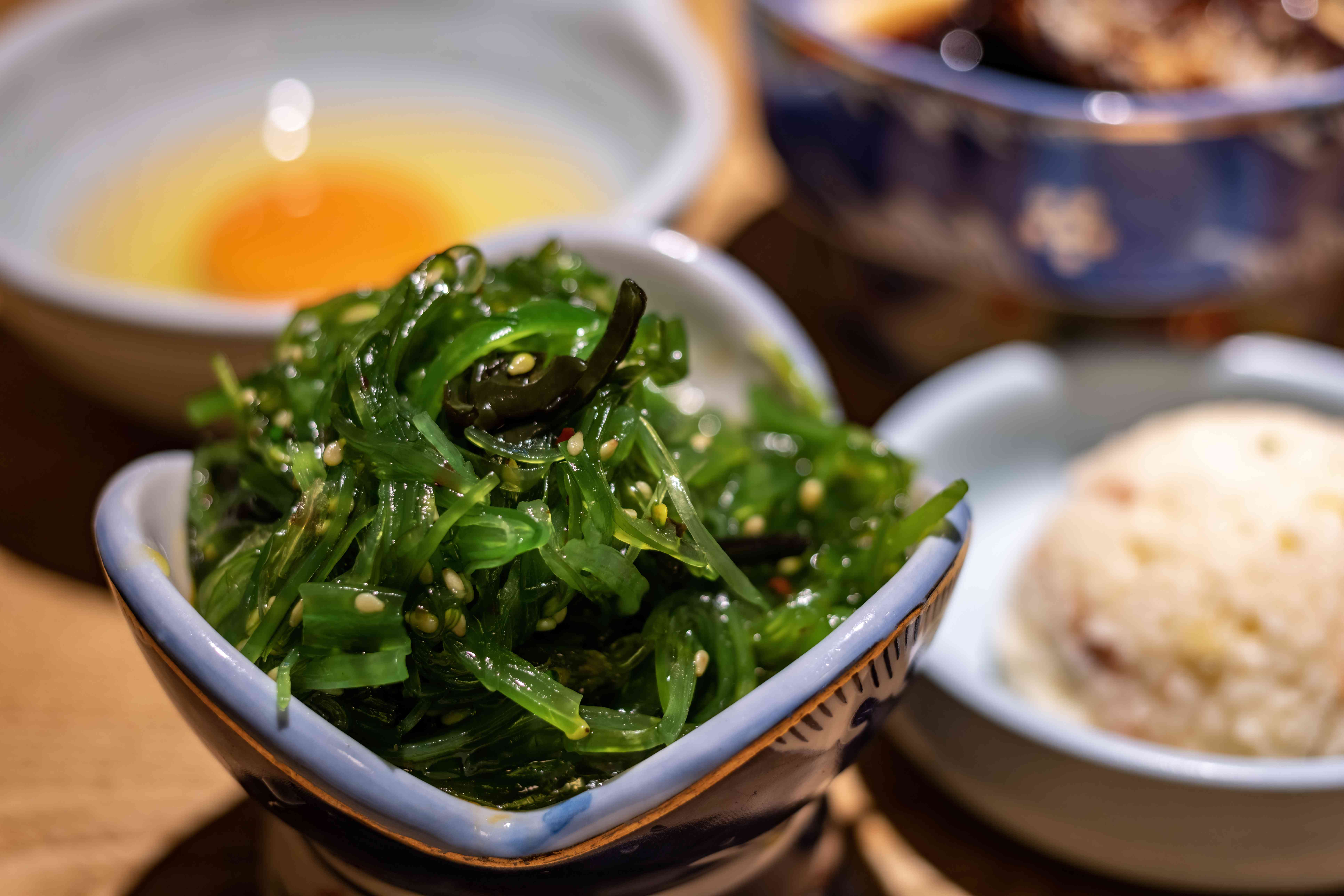From Ocean To Plate: Unveil 11 Incredible Health Benefits Of Seaweed!
Seaweed often considered the unsung hero of the ocean's bounty has been a staple in many cultures particularly in Asian cuisine. Beyond its culinary versatility seaweed is packed with an array of health benefits that are often overlooked. This article aims to highlight the nutritional powerhouse that seaweed is and its multiple health advantages.
Introduction To Seaweed's Nutritional Profile
Seaweed a term encompassing a variety of marine plants and algae grows abundantly in our oceans and offers more than just an ecological benefit to our marine environment. It's a hidden gem in the world of nutrition often overlooked despite its longstanding use in various global cuisines particularly in Asia. From nori used in sushi rolls to wakame in miso soup seaweed has been an integral part of dietary traditions for centuries.
What makes seaweed truly remarkable is its dense nutritional profile. Packed with a plethora of vitamins minerals and other beneficial compounds it serves not just as a food item but as a powerhouse of health. It’s incredibly diverse with each variety—from the deep green spirulina to the brown kelp—boasting its own unique set of nutrients and health benefits.
In this comprehensive exploration we'll dive into the myriad of health benefits that seaweed offers. Understanding seaweed’s role in nutrition can open up new avenues for enhancing your diet and overall well-being. Whether you're a health enthusiast a culinary explorer or simply someone looking to diversify your diet seaweed has something to offer.
11 Incredible Health Benefits Of Seaweed
1. Rich in Vitamins and Minerals
Seaweed stands out as a nutritional powerhouse loaded with essential vitamins like A C E and K and minerals including iodine calcium and iron. These nutrients are crucial for a myriad of bodily functions from maintaining strong bones and teeth to supporting a healthy immune system and ensuring proper thyroid function. The high iodine content in seaweed especially in varieties like kelp is vital for thyroid health which regulates metabolism.
2. Heart Health Ally
Seaweed is a friend to your heart primarily due to its rich content of omega-3 fatty acids and potassium. Omega-3s are known for their role in reducing the risk of heart disease by lowering blood cholesterol levels. Potassium helps manage blood pressure by counteracting the adverse effects of sodium. Regular consumption of seaweed can therefore contribute to a healthier cardiovascular system.
3. Weight Loss Companion
For those looking to shed a few pounds seaweed is an excellent dietary addition. It's low in calories yet high in fiber which promotes a feeling of fullness and reduces overall calorie intake. The alginate in seaweed particularly in brown seaweed types can also reduce fat digestion by the body thereby aiding in weight loss efforts.
4. Gut Health Booster
The gut-friendly soluble fiber in seaweed such as alginate and fucoidan aids digestion and supports a healthy gut microbiome. This fiber promotes the growth of good bacteria in the gut while preventing constipation thereby maintaining a healthy digestive system.
5. Blood Sugar Regulator
Seaweed is beneficial for blood sugar control. It has been found to contain compounds that can increase insulin sensitivity and regulate blood sugar levels. This makes seaweed a potentially beneficial food for people with diabetes or those at risk of developing the condition.
6. Powerful Antioxidant
The antioxidants in seaweed such as vitamins A C and E and flavonoids help protect the body from cellular damage caused by free radicals. These antioxidants play a significant role in reducing the risk of chronic diseases like heart disease and cancer as well as in combating the effects of aging.
7. Skin Care Marvel
Seaweed's high mineral content and antioxidants make it a great ingredient for skin care. It hydrates and conditions the skin improves elasticity and can even provide relief for skin conditions like eczema and acne due to its anti-inflammatory properties.
8. Anti-inflammatory Properties
The anti-inflammatory properties of seaweed are beneficial for reducing inflammation throughout the body. This can be particularly helpful for individuals with conditions like arthritis helping to alleviate pain and discomfort.
9. Boosts Immune Function
Seaweed is rich in vitamins and minerals that are essential for a robust immune system. Regular consumption can help fortify the body's defenses against infections and diseases.
10. Supports Thyroid Function
Given its high iodine content seaweed is key in supporting thyroid health. The thyroid gland uses iodine to produce hormones that regulate metabolism growth and energy production. Thus incorporating seaweed into the diet can help maintain healthy thyroid function.
11. May Have Anti-Cancer Properties
Some studies suggest that certain compounds in seaweed like fucoidan have anti-cancer properties. These compounds may inhibit the growth of cancer cells and promote their destruction. While research is ongoing these findings highlight the potential of seaweed as part of a diet that may reduce cancer risk.
Seaweed Nutrition Facts
When it comes to incorporating seaweed into your diet the variety you choose can influence both the flavor and nutritional benefits. Here are some of the best and most popular types of seaweed to consider:
1. Nori
- Description: Often used in sushi rolls nori is a type of red algae that turns dark green when dried. It's known for its crisp texture and mild flavor.
- Nutritional Highlights: Rich in protein vitamins (especially vitamin B12) minerals and fiber.
- Culinary Uses: Ideal for sushi wraps or as a snack.
2. Wakame
- Description: A green seaweed commonly used in soups and salads wakame has a slightly sweet flavor.
- Nutritional Highlights: Contains calcium iodine thiamine and omega-3 fatty acids.
- Culinary Uses: Great in miso soup salads and side dishes.
3. Kelp
- Description: Kelp is a brown seaweed known for its large size. It has a briny umami flavor.
- Nutritional Highlights: High in iodine making it beneficial for thyroid health. Also contains vitamins A B E D and K.
- Culinary Uses: Used in broths as seasoning (kelp powder) and in snacks.
4. Dulse
- Description: Dulse is a red seaweed with a chewy texture and a slightly spicy smoky flavor.
- Nutritional Highlights: Rich in potassium iron and protein.
- Culinary Uses: Can be eaten raw cooked or as a flavor enhancer in dishes.
5. Spirulina
- Description: Technically a blue-green algae spirulina is known for its intense flavor and vibrant color.
- Nutritional Highlights: Packed with protein B vitamins and antioxidants.
- Culinary Uses: Popular as a supplement in powder form ideal for smoothies and health drinks.
Understanding Seaweed Side Effects
While seaweed is highly nutritious it's important to consume it in moderation due to potential side effects:
1. Excessive Iodine Intake
- Risk: Some seaweed especially kelp is very high in iodine. Excessive iodine can lead to thyroid dysfunction either hypothyroidism or hyperthyroidism.
- Prevention: Monitor your intake especially if you have existing thyroid issues.
2. Heavy Metal Contamination
- Risk: Seaweed can absorb and accumulate heavy metals from the water like lead mercury and arsenic.
- Prevention: Source seaweed from reputable suppliers and limit intake of varieties known to accumulate higher levels of heavy metals.
3. Gastrointestinal Discomfort
- Risk: High fiber content in seaweed can cause bloating gas or stomach upset in some individuals especially when consumed in large quantities.
- Prevention: Start with small amounts and gradually increase intake.
4. Allergic Reactions
- Risk: Some people may be allergic to seaweed or iodine leading to symptoms like itching hives or swelling.
- Prevention: If you have a known allergy avoid seaweed and consult a healthcare provider.
5. Drug Interactions
- Risk: Seaweed can interact with certain medications such as blood thinners due to its high vitamin K content.
- Prevention: Consult with a healthcare professional if you're on medication.
By being mindful of these side effects and choosing the right type of seaweed for your dietary needs you can safely enjoy the numerous health benefits that this marine superfood has to offer.
How Experts Suggest Adding Seaweed To Your Day-To-Day Life?
Integrating seaweed into your daily diet can be both a delicious and nutritious endeavor. Here are some expert suggestions on how to easily include seaweed in your regular meals:
1. As a Healthy Snack
- Nori Sheets: These are often used in sushi but can also be enjoyed on their own as a low-calorie nutrient-rich snack. Available in flavored varieties they can be a great alternative to chips.
- Seaweed Chips: You can find or make your own seaweed chips which are a crunchy tasty snack option.
2. In Soups and Broths
- Kelp or Wakame: Add dried kelp or wakame to soups and broths. They impart a unique umami flavor and are especially popular in Asian cuisines like in miso soup.
3. As a Salad Ingredient
- Seaweed Salad: Fresh or rehydrated seaweed like wakame can be mixed with cucumber sesame seeds and a light dressing to create a refreshing seaweed salad.
- Mixed into Green Salads: Adding seaweed to your regular green salads can boost nutritional content and add a new flavor dimension.
4. In Smoothies
- Powdered Seaweed: A small spoonful of powdered seaweed like spirulina or chlorella can be added to smoothies without significantly altering the taste while adding a burst of nutrients.
5. As a Seasoning
- Seaweed Flakes: Use dried seaweed flakes as a salt alternative for seasoning dishes. It adds a unique taste and is rich in iodine and other minerals.
6. In Rice and Grain Dishes
- Mixed with Rice: Incorporate chopped seaweed into rice dishes for added flavor and nutrition. It works well in sushi rolls poke bowls and even in simple steamed rice.
7. In Baking
- Seaweed in Bread and Pastries: Finely ground seaweed can be mixed into bread dough or pastry recipes. It adds a subtle flavor and boosts the nutritional content.
8. In Breakfast Foods
- Seaweed in Omelets and Scrambles: Add finely chopped seaweed to omelets or egg scrambles for a nutrient boost.
- Seaweed Sprinkles on Cereal or Yogurt: Sprinkle seaweed flakes or powder over your morning cereal or yogurt for an extra dose of vitamins and minerals.
Conclusion
Seaweed is not just an oceanic plant but a nutritional powerhouse that deserves a prominent place in our diets. Its myriad health benefits—from boosting heart health to potentially fighting cancer—highlight its significance as a superfood. The versatility of seaweed in culinary applications makes it accessible and enjoyable for everyone whether you are a seasoned chef or a home cook.
As we've explored integrating seaweed into your daily life is straightforward and beneficial. Whether it's through snacking on nori sheets adding wakame to your soups or sprinkling seaweed flakes over your meals there are numerous ways to enjoy this nutrient-rich sea vegetable. By making seaweed a part of your regular diet you not only diversify your culinary experiences but also contribute positively to your overall health.
Remember the journey to good health is ongoing and incorporating foods like seaweed can be a small yet significant step in this journey. With its rich nutritional profile and potential health benefits seaweed is more than worthy of its superfood status. So next time you're pondering over your meal choices consider adding a touch of seaweed and embrace the bounty that the ocean has to offer.








